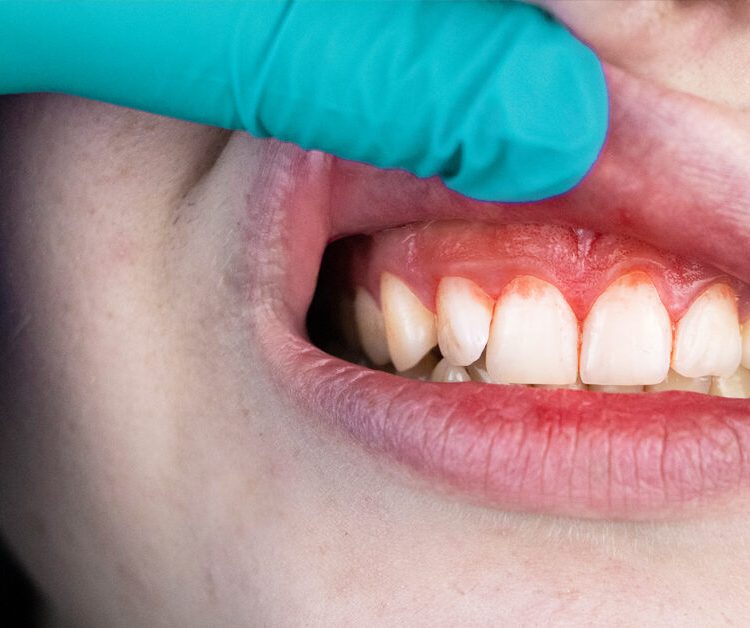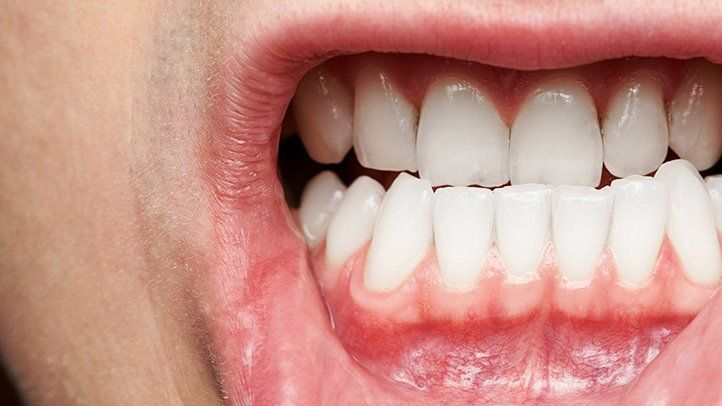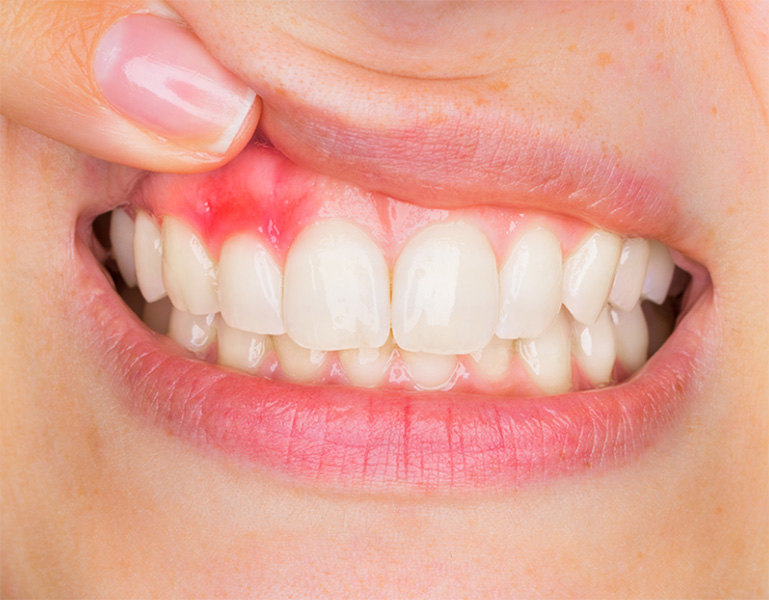As the initial phase of gum disease, gingivitis is inflammation of the gums. Plaque, which is a soft, colorless film of bacteria, is the direct cause. It comes from trapped food in the space between the gum line and where the gums attach to your teeth. Plaque constantly builds up on your teeth, which is why brushing and flossing are essential to having a healthy mouth.
When you don’t practice proper dental care to remove plaque, it produces toxins that irritate your gums. Over time, the plaque turns into tartar, which requires professional help to remove. Then, inflammation develops in the gingiva, causing gingivitis. This condition is reversible because the connective tissue and bone haven’t suffered damage.

1. DO YOU HAVE GUM DISEASE?
You can tell that your gums are healthy just by looking at them. They should be pale pink, firm and fit tightly around your teeth. If you have gingivitis, your gums will appear dark red, puffy or swollen. They will also be tender and bleed when you brush or floss. Gingivitis often gives people bad breath too. As the condition progresses, you might notice a receding gum line or that your gums have pulled away from your teeth. You could have loose teeth, pain or sensitivity when chewing, or pus between your gums and teeth.
2. WHAT HAPPENS IF YOU DON’T GET TREATMENT?
Not getting treatment for gingivitis allows it to progress to gum disease, which can spread to the bone and tissues. Periodontitis is a more serious condition for which you could lose your teeth. Additionally, experts believe that chronic inflammation from gingivitis has a connection to systemic diseases. Some of these include coronary artery disease, diabetes, respiratory disease and rheumatoid arthritis. The reason is that the bacteria can enter the bloodstream through gum tissues. From there, it can affect your lungs, heart and other organs. Furthermore, dentists refer to a severe form of gingivitis as trench mouth. It can cause bleeding, infected and painful gums. Ulcerations can also develop.


3. HOW DO YOU TREAT AND PREVENT GINGIVITIS?
It’s possible to treat and prevent gingivitis by practicing good oral hygiene. Keeping diabetes under control and quitting smoking can also help. Dentists help treat and prevent the condition by removing plaque and tartar with scaling, root planing, and laser treatment. In some cases, they prescribe antibiotics or time-release antiseptics to reduce the presence of oral bacteria. For serious gingivitis, surgery may be necessary to remove plaque and repair the gums and teeth.
Now that you know the answer to, “what is gingivitis?”, make an appointment with Arc Dental in Mississauga for a checkup. Your Mississauga dentist can help you treat and prevent the condition. We also offer several general dental services, including:
- Comprehensive exams
- Teeth cleanings
- Cavity fillings
- Tooth extractions
- Root canals
- Crowns
Don’t let your gingivitis escalate into gum disease. Get the treatment that you need to keep your mouth healthy. Call us now at (905) 997-4272 to schedule your consultation.


